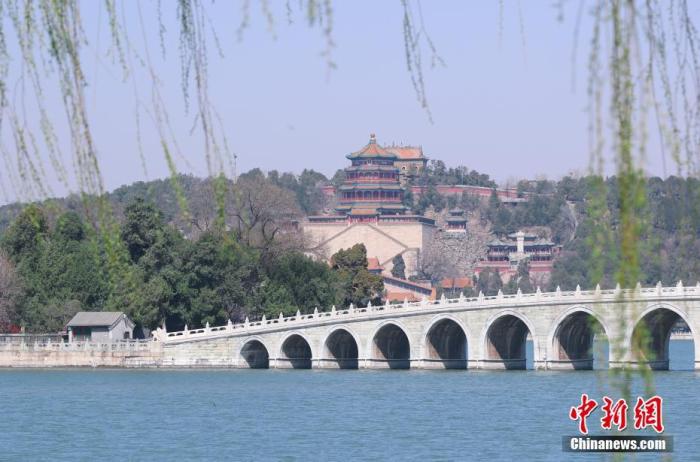China News Service, November 30. According to the website of the Ministry of Culture and Tourism on the 30th, recently, the Ministry of Culture and Tourism, the National Development and Reform Commission, the Ministry of Education, the Ministry of Industry and Information Technology, the Ministry of Public Security, the Ministry of Finance, the Ministry of Transport, Agriculture and Rural Affairs Ten departments including the Ministry of Commerce, the Ministry of Commerce, and the State Administration of Market Supervision jointly issued the "Opinions on Deepening "Internet + Tourism" and Promoting the High-quality Development of Tourism."
(Hereinafter referred to as "Opinions").
The "Opinions" propose that by 2022, a number of smart tourist attractions, resorts, villages and cities will be built, and the total number of tourist reception and tourism consumption across the country will return to the level before the new crown pneumonia epidemic.
Data map: Photograph by Jia Tianyong, reporter from China News Agency, Summer Palace, Beijing
The "Opinions" include three parts: overall requirements, key tasks, and safeguard measures. It is proposed that by 2022, a number of smart tourist attractions, resorts, villages and cities will be built, and the total number of tourist reception and tourism consumption across the country will be restored to the level before the new crown pneumonia epidemic. .
By 2025, national 4A and above tourist attractions, and provincial and above tourist resorts will basically achieve smart transformation and upgrading, and the total number of tourist reception and tourism consumption across the country will increase significantly, and the attraction and influence of overseas tourists will be significantly enhanced.
Combining with the new situation, new opportunities and new challenges facing the development of "Internet + tourism" in the new era, it is proposed to accelerate the construction of smart tourist attractions, improve tourism information infrastructure, innovate tourism public service models, increase online tourism marketing efforts, and strengthen tourism supervision Eight key tasks include services, improving tourism governance capabilities, supporting tourism innovation and entrepreneurship, and ensuring tourism data security.
The "Opinions" emphasized that we must adhere to the correct orientation to achieve an organic unity of social and economic benefits.
Adhere to market leadership and give full play to the decisive role of the market in resource allocation.
Insist on technology empowerment, and further advance the digital, networked, and intelligent transformation and upgrading of the tourism field.
Adhere to openness and sharing, and accelerate the formation of a new tourism development model characterized by openness and sharing.
Adhere to safety and order, build a secure line of defense for the integrated development of the Internet and the tourism industry, and rely on Internet technology to comprehensively improve the level of tourism supervision and service.
Adhere to inclusive and prudential supervision, reserve offline services for special groups such as the elderly, and optimize user experience.
The issuance and implementation of the "Opinions" is conducive to comprehensively promoting the development of "Internet + Tourism", promoting changes in the quality, efficiency and driving force of tourism development, and better playing the important role of tourism in promoting economic and social development and meeting the needs of people for a better life , To help build a new development pattern with the domestic big cycle as the main body and the domestic and international double cycles mutually promoting each other.
In the next step, the Ministry of Culture and Tourism and the National Development and Reform Commission will work with relevant departments in accordance with the division of responsibilities and coordinate implementation to ensure that the main goals and key tasks set in the "Opinions" are implemented in place, strengthen tracking analysis, coordination and guidance, and timely report on important situations. State Council. All regions will study and formulate implementation plans that are in line with the actual conditions of the region, and improve related supporting policies.

